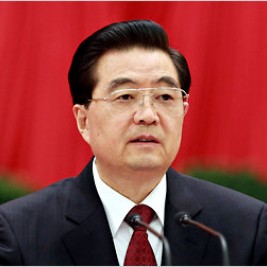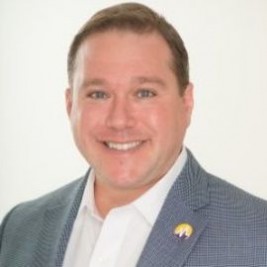

Corporate Appearances, Speaking Engagements, Autograph Signings, Endorsements, VIP Meet & Greets, Store Grand Openings
Book Robert J. Sternberg, PHD for a Speaking Engagement
Businesses, Non-profit organizations, event planners and companies across the country have worked closely with our booking agents to hire Robert J. Sternberg, PHD for a speaking engagements, guest appearances, product endorsements and corporate events. Many of those same clients have continued to turn to our speakers bureau as we can easily align Robert J. Sternberg, PHD’s availability with their upcoming seminar, gala, annual conference, corporate function, and grand opening. Our close relationship with Robert J. Sternberg, PHD’s booking agent and management team further enables us to provide inquiring clients with Robert J. Sternberg, PHD’s speaking fee and appearance cost.
If your goal is to hire Robert J. Sternberg, PHD to be your next keynote speaker or to be the next brand ambassador our celebrity speakers bureau can assist. If Robert J. Sternberg, PHD’s booking fee is outside your companies budget or your unable to align with his appearance availability, our booking agents can provide you a list of talent that aligns with your event theme, budget and event date.
During the last ten years, a number of exciting developments have occurred in the domain of theory with respect to our understanding of intelligence. New theories of the mind, such as Howard Gardner's and my own, have expanded our thinking about intelligence and, I believe, helped us realize that intelligence is a much broader construct than many of us had thought. But developments on the measurement front have not, as of yet, kept up with theoretical developments.
It is one thing to propose a new and glitzy theory, but quite another to devise measurement operations that enable educators to assess the abilities posited by the theory in a reliable and valid way. Many theories-- of intelligence and of other constructs-- have eventually been consigned to the dustheaps of history because the theories were never followed up with measurements that met even the minimal psychometric criteria for a usable test.
One of the most exciting projects in which I am currently involved is the development of the Sternberg Triarchic Abilities Test. Working with a large and highly regarded test publisher, The Psychological Corporation, I am trying to put into practice what I have been preaching over the past several years.
The STAT, to be published in 1992, will be divided into nine multiple levels for differing ages, and will be suitable for group administration to individuals in kindergarten through college, as well as to adults. Two forms of the test will be available. The test differs in its scope from conventional tests. For one thing, it yields separate scores for componential information processing, coping with novelty and automatization and practical-intellectual skills. Thus, the scores provided by the test correspond strictly to the aspects of intelligence specified by my Triarchic Theory. The theory specifies that intelligence can be understood in terms of components of information processing being applied to relatively novel experience and later being automatized in order to serve three functions in the environment: adaptation to, selection of, and shaping of that environment.
Crossed with these scores are scores for three content areas: verbal, quantitative, and figural. Thus, the various kinds of processing are each measured in each of the three content domains, yielding 4 x 3 = 12 separate subtests per level. In this way, it is possible to diagnose not only strengths and weaknesses in information processing, but also in various kinds of representations of information. The test is a group test, and can be administered in its totality in three class periods. Portions of it, of course, can be administered in less.
How do the STAT test items differ from those on a conventional test? In a number of respects. For one, there is more emphasis on ability to learn than on what has been learned. For example, verbal skill is measured by learning from context, not by vocabulary. For another, the test measures skills for coping with novelty, whereby the examinee must imagine a hypothetical state of the world and then reason as though this state of the world were true. For yet another, the test measures practical abilities, such as reasoning about advertisements and political slogans, not just about decontextualized words or geometric forms. These are only a few of the differences that separate this test from its predecessors.
Do test items such as those in the STAT actually work? For one thing, many, but not all of the item types have been explored in my research on the Triarchic Theory of Human Intelligence, and only items yielding favorable outcomes have been used in the test. For another, item types have been constantly revised and re-revised until they met both our theoretical and our measurement standards. The Psychological Corporation has just completed pilot testings of the various item types, with very favorable results.
The STAT is not immune to effects of prior learning, nor is it "culture-free." It is impossible, I believe, to create a test that is genuinely immune to effects of prior experience or that is culture-free, because intelligence cannot be tested outside the boundaries of a culture. Intelligence is always used in some context, and must be measured in some context. The proposed test, however, seems broader and more comprehensive than other existing tests, and hence allows for more diversity in backgrounds than would be true of typical tests.
Through the STAT, it will be possible to extend the testing of intelligence substantially beyond the conventional boundaries. It will be possible to identify children who are gifted in unconventional ways, or who would appear mentally retarded by a conventional test but not by this one, which considers practical as well as academic intellectual skills. If we want to measure intelligence, we can and should measure it broadly rather than in the narrow ways that have failed to give a true picture of human capacities.
Another theory of intelligence is proposed by Dr. Robert Sternberg. His Triarchic Theory of Intelligence views individual differences from yet another, but highly complementary, perspective. He points out, as does Dr. Gardner, that traditional educational systems value "componential" intelligence most highly, and that tests are designed largely to assess this type of intelligence-composed primarily of linguistic and logical-mathematical abilities. Two other kinds of intelligence, "contextual" and "experiential" are of enormous value to society, yet not reinforced nor given much opportunity to develop in many traditional classrooms. Dr. Sternberg's wit and playful sense of humor keep his audiences laughing as he presents powerful information and practical suggestions for educating students more broadly for a world in great need of creative thinkers and those who enjoy completing tasks to the best of their ability.
Currently IBM Professor of Psychology and Education at Yale University, Dr. Sternberg graduated from Yale and received his Ph.D. in psychology from Stanford University. He has been the winner of numerous awards, including the Early Career Award and Boyd R. McCandless Award of the American Psychological Association, the Outstanding Book and Research Review Awards of the Society for Multivariate Experimental Psychology, and the Distinguished Scholar Award of the National Association for Gifted Children. He is a past winner of National Science Foundation and Guggenheim Fellowships. He received the Mensa Education and Research Foundation Award for Excellence in 1989 and is listed in Science Digest as one of 100 "Top Young Scientists in the United States." He received the Citation Classic Designation of the Institute for Scientific Information and the Outstanding Book Award of The American Educational Research Association.
His books include Beyond IQ: A Triarchic Theory of Human Intelligence, Cognitive Psychology, Cognitive Psychology, How to Develop Creativity in Students and Teachers, Intelligence, Heredity, and Environment, and Teaching for Thinking.

Let our team of booking agents help create a memorable experience with hiring Robert J. Sternberg, PHD for your store grand opening, golf outing, trade show booth or corporate outing.
NOPACTalent acts as a Celebrity Speakers Bureau and Athlete Booking agency for corporate functions, appearances, private events and speaking engagements. NOPACTalent does not claim or represent itself as Robert J. Sternberg, PHD’s speakers bureau, agent, manager or management company for Robert J. Sternberg, PHD or any celebrity on this website. NOPACTalent represents organizations seeking to hire motivational speakers, athletes, celebrities and entertainers for private corporate events, celebrity endorsements, personal appearances, and speaking engagements.








